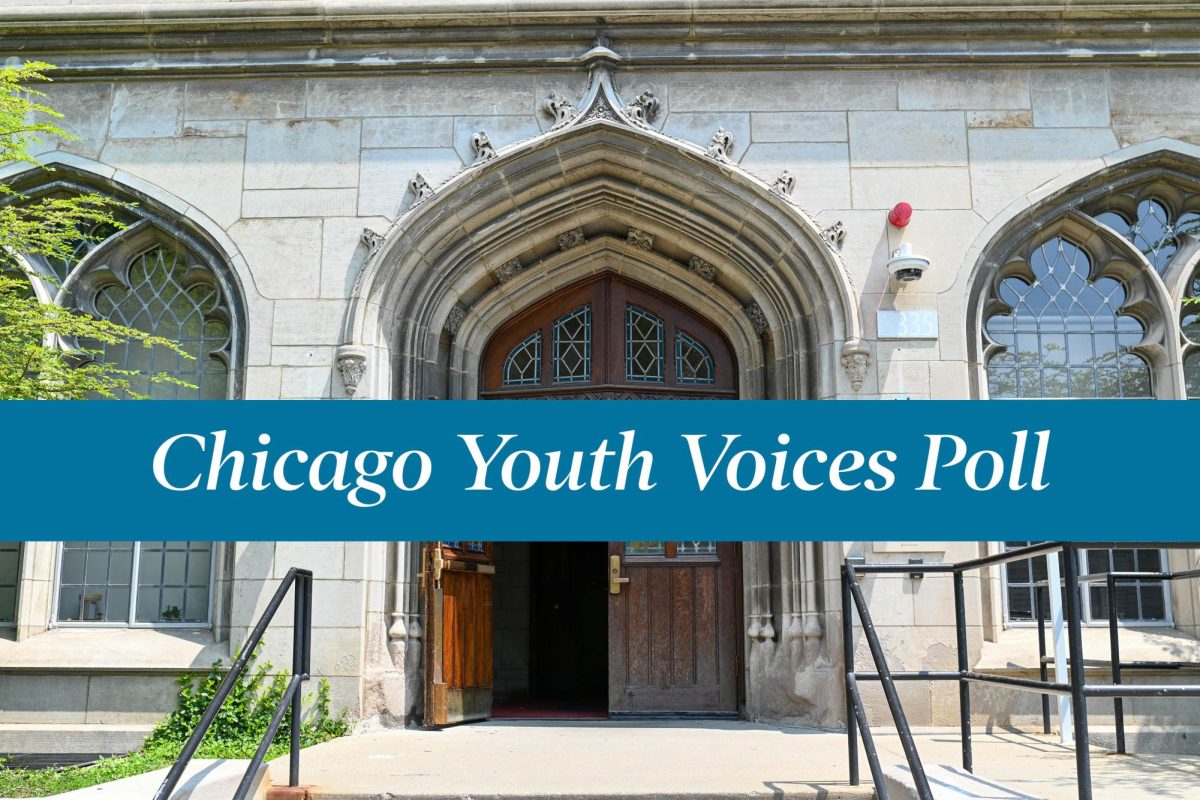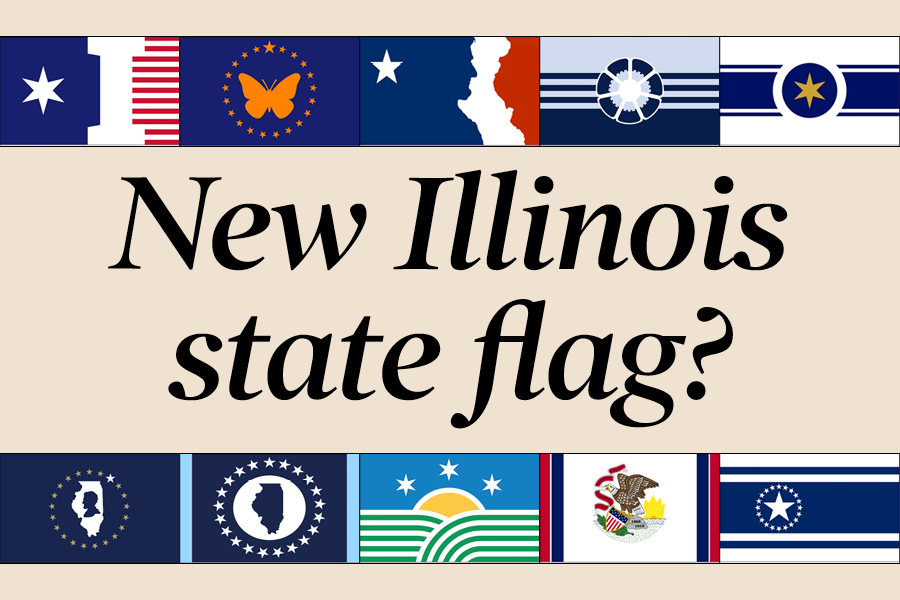Mental health, school safety and DEI efforts are the highest concerns for U-High students, a new survey of city teens shows. At U-High, the survey found mental health was the top concern, with over 65% of students reporting being somewhat to very concerned about the matter, and over 66% feel the school is not or is only partially doing enough to support students’ mental health.
The 2024 Voice of Chicago Youth Student Poll was organized by the Scholastic Press Association of Chicago and the Northwestern Medill School of Journalism, created and distributed by a committee of student journalists. About 36% of 626 U-High students participated.
About 74% of respondents at private schools reported having some level of concern regarding mental health compared to about 56% of respondents at public schools. Reflecting those results, over 65% of U-High students feel some level of concern for mental health at school or in their personal lives.
Senior Mariama Jalloh says her mental health hasn’t been directly impacted by being at U-High but wishes there was a stronger approach for helping students who may need a break.
“I do think, specifically with the mental health day system and how you can take like five days off, I feel like it’s a little hard for students to take those days when they need them as they will feel stressed about missing school,” she said.
U-High counselor Teddy Stripling says there are a lot of resources at Lab available to students struggling with mental health, whether in assemblies and workshops or through individual conversations with teachers or counselors. Yet upon hearing of the survey results, he feels it’s important that he and other faculty continue seeking ways to improve, perhaps gauging students’ opinions as well.
“Sometimes students have really great ideas and we just don’t know,” he says. “I think it’s kind of fluid where, like, people are always kind of curious on what similar things we can do.”
Security still a top issue for U-High students
Safety was also a top concern for U-High students last year, joining nearly half of the Chicago students who reported being worried about safety in their schools. This year slightly fewer — about 44% of U-High students — reported having some level of concern about school safety.
Last September, Lab implemented new security measures, such as more frequent use of student IDs to access campus buildings and the installation of a fence and gate on the north end of Kenwood Mall. About 30% of respondents said the school’s security measures did not make them feel safer, about 21% said they did, and about 40% were neutral.
“I feel pretty safe in school, but sometimes I think about how anyone could get into the buildings,” a U-High ninth grader stated in the survey. “Like, sorry I forgot my ID, then you put your name on some list and get right in. It makes me feel pretty worried sometimes.”
On Nov. 27, 2023, an unprompted lockdown alarm was issued on the Historic Campus, worrying many students and faculty. In response to whether lockdown drills made individuals feel safer, nearly half were neutral, while 28% said they did feel safer and approximately 22% of respondents said lockdown drills did not make them feel safer.
A U-High sophomore, responding to a free-answer prompt, said they felt very safe at school due to the presence of security guards, the protocols implemented to keep students safe and proximity to the University of Chicago.
DEI and lack of belonging high concern for U-High students
Lab has also established initiatives directed around student belonging, such as forming a retention committee at the beginning of the 2023-24 year to better understand the Black student experience, observing the University of Chicago’s Forum for Free Inquiry and Expression and promoting identity- and affinity-oriented student events. Despite these efforts, about 40% of U-High students reported feeling somewhat to very concerned about DEI issues at school, and nearly 60% of students feel their voice is not or is only partially heard at Lab. Additionally, nearly a quarter of students reported having experienced or witnessed a hate crime in their community, though over 30% are not sure if they have.
“I feel my school has a big issue with political discourse in that students are very quickly socially shunned for their political beliefs, even when a student is asking completely innocuous questions and being very respectful,” a U-High junior reported on the survey. “My school community does not encourage real discourse or diversity of thought.”
Since the definition of “hate crime” can differ from student to student, Mr. Stripling and his learning and counseling colleagues encourage students who feel comfortable to report incidents, no matter how big or small.
“I’ve had a couple of direct conversations this year where students didn’t want to say more or officially report something because they were worried about the ramifications socially,” he said.
Ahead of presidential election, reproductive rights, immigration are top national concerns
Responding to the same survey, students were asked to select three issues from a list of 13 or enter another topic not already listed. Reproductive rights and immigration issues were the two most concerning issues as nearly 44% of students reported feeling concerned, and the next most concerning was environmental issues at about 42%.
“Even though immigration issues don’t impact me and my family, it impacts people in my community, some of my friends from my old school, and other people who genuinely come to this country for a better life,” a U-High sophomore shared on the survey. “In the upcoming election, I feel the two sides of immigration are all or nothing.”
Political matters were also of high concern for U-High students, including international conflicts such as the Israel-Hamas war and national issues such as rights for transgender people.
“I have heard various things that make me concerned about awareness and inclusion,” a U-High sophomore stated, “and I would like for the school to take this more seriously.”





















































